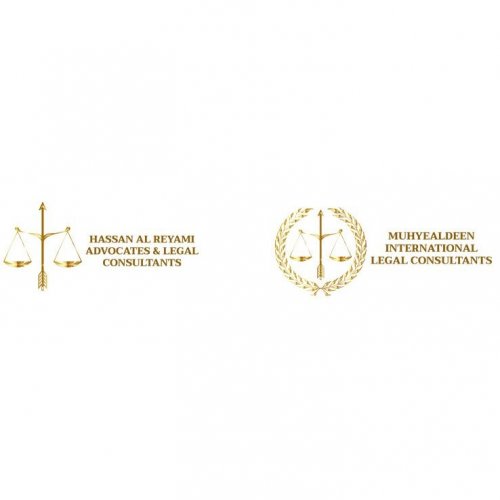Best Energy Regulatory Law Lawyers in Abu Dhabi
Share your needs with us, get contacted by law firms.
Free. Takes 2 min.
List of the best lawyers in Abu Dhabi, United Arab Emirates

The Black Robe For Legal Consultancy & Debit Collection
1 hour Free ConsultationAbout Energy Regulatory Law in Abu Dhabi, United Arab Emirates
Energy Regulatory Law in Abu Dhabi governs the generation, transmission, distribution, and supply of energy resources including electricity, water, and increasingly, renewable energy. As the capital of the United Arab Emirates and a major energy hub, Abu Dhabi places strong emphasis on regulating its energy sector to ensure sustainability, reliability, and compliance with both local and federal mandates. The legal framework is overseen by dedicated regulatory bodies, with the goal of balancing energy needs, environmental concerns, and economic development. The law applies to public entities, private sector participants, investors, and consumers.
Why You May Need a Lawyer
There are several situations where specialist legal advice in Energy Regulatory Law is essential in Abu Dhabi. Some common examples include:
- Negotiating or reviewing contracts with energy suppliers or government authorities
- Navigating compliance requirements for building or operating energy infrastructure
- Participating in tenders or applying for energy sector licenses
- Resolving disputes with energy providers or regulatory agencies
- Addressing regulatory challenges in renewable energy projects
- Handling tariffs, subsidies, or incentives within the framework of local regulations
- Understanding obligations and rights related to energy distribution or supply
- Advising on mergers, acquisitions, or joint ventures involving energy assets
Given the technical and regulatory complexities, seeking a lawyer ensures compliance and protects your legal and financial interests.
Local Laws Overview
Abu Dhabi’s energy sector operates under specific local and federal laws. The Abu Dhabi Department of Energy (DoE) is the main regulatory authority, responsible for overall oversight and policy setting. The Regulation and Supervision Bureau (RSB) manages licenses, monitors performance, and enforces standards for water, wastewater, and electricity companies. Key legislation and regulations include:
- Law No. 11 of 2018 Regulating the Energy Sector in the Emirate of Abu Dhabi
- Federal Law No. 24 of 1999 for the Protection and Development of the Environment (relevant for environmental compliance)
- Regulations for clean and renewable energy integration
- Health, safety, and technical standard regulations applicable to all energy-related projects and facilities
Foreign investment is encouraged, particularly in renewable energy, but is subject to specific rules, including local partnership requirements. Penalties for non-compliance can be significant, and most activities require prior licensing.
Frequently Asked Questions
What entities regulate the energy sector in Abu Dhabi?
The Abu Dhabi Department of Energy (DoE) and the Regulation and Supervision Bureau (RSB) are the main regulatory bodies responsible for creating policies, issuing licenses, and ensuring compliance.
Is a license required to operate in the energy sector?
Yes, almost all activities in the energy sector, including generation, supply, and distribution, require a license from the appropriate local authority.
Can foreign companies invest in Abu Dhabi’s energy projects?
Foreign companies can invest, especially in renewable energy projects, but participation regulations, partnership arrangements, and local licensing requirements must be met.
What are the main laws governing energy regulation?
The key law is Law No. 11 of 2018 Regulating the Energy Sector, along with sector-specific regulations issued by the DoE and technical standards set by the RSB.
How are energy tariffs and prices regulated?
Tariffs are set or approved by regulatory authorities to ensure fair pricing, affordability, and sustainability. They are revised periodically and must comply with local legislation.
What are the environmental compliance requirements?
Energy projects must comply with environmental regulations, including Environmental Impact Assessment (EIA) processes as mandated by Law No. 24 of 1999 for the Protection and Development of the Environment.
Are there incentives for renewable energy investments?
Yes, Abu Dhabi offers various incentives for renewable energy projects, which may include subsidies, fast-track approval processes, and dedicated tender schemes.
What procedures are involved in dispute resolution?
Disputes can be resolved through negotiation, mediation, or litigation. Some contracts mandate arbitration. Regulatory bodies may also play a role in dispute settlements.
What happens if an entity breaches energy regulations?
Breaches may result in fines, suspension or revocation of licenses, and other penalties. The specifics depend on the nature and severity of the violation.
How can individuals or companies stay updated on regulatory changes?
It is essential to monitor official announcements from the DoE and RSB, regularly review updated regulations, and consult with legal professionals specializing in energy law.
Additional Resources
Here are some useful resources and organizations for further information or assistance:
- Abu Dhabi Department of Energy (DoE) - Responsible for overall policy and regulatory oversight
- Regulation and Supervision Bureau (RSB) - Manages licensing and enforces technical standards
- Abu Dhabi Transmission and Despatch Company (TRANSCO) - Handles transmission infrastructure
- Emirates Water and Electricity Company (EWEC) - Manages procurement and supply of water and electricity
- Masdar - Focuses on renewable energy projects and innovation
- Environmental Agency Abu Dhabi - Oversees environmental compliance and EIA requirements
Next Steps
If you require legal assistance in Energy Regulatory Law in Abu Dhabi, consider the following steps:
- Clearly define your specific legal issue or inquiry related to energy regulations
- Gather all relevant documents, contracts, and correspondence to assist your lawyer
- Consult a reputable legal professional or law firm with experience in Abu Dhabi’s energy sector
- Prepare a list of questions and objectives for your initial legal consultation
- Contact the appropriate regulatory authority if you need clarification on procedures or requirements
- Stay informed about ongoing regulatory updates from the sector’s key agencies
A qualified lawyer will guide you through the required processes, help ensure compliance, and protect your interests, ultimately helping you navigate the complexities of Abu Dhabi’s Energy Regulatory Law.
Lawzana helps you find the best lawyers and law firms in Abu Dhabi through a curated and pre-screened list of qualified legal professionals. Our platform offers rankings and detailed profiles of attorneys and law firms, allowing you to compare based on practice areas, including Energy Regulatory Law, experience, and client feedback.
Each profile includes a description of the firm's areas of practice, client reviews, team members and partners, year of establishment, spoken languages, office locations, contact information, social media presence, and any published articles or resources. Most firms on our platform speak English and are experienced in both local and international legal matters.
Get a quote from top-rated law firms in Abu Dhabi, United Arab Emirates — quickly, securely, and without unnecessary hassle.
Disclaimer:
The information provided on this page is for general informational purposes only and does not constitute legal advice. While we strive to ensure the accuracy and relevance of the content, legal information may change over time, and interpretations of the law can vary. You should always consult with a qualified legal professional for advice specific to your situation.
We disclaim all liability for actions taken or not taken based on the content of this page. If you believe any information is incorrect or outdated, please contact us, and we will review and update it where appropriate.












